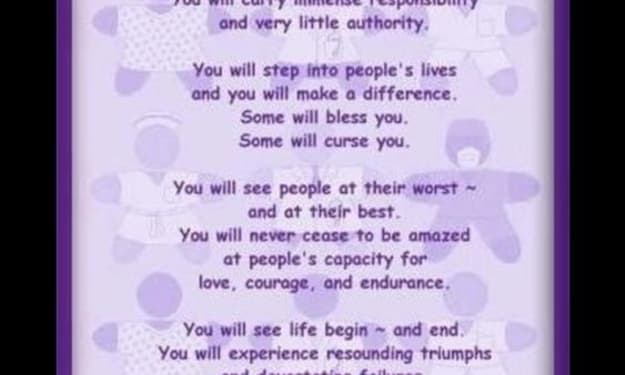Parental perspective? What perspective is that?
Freedom

When the video of a 14-year-old boy in a city who was slapped by his mother and jumped off a building in anger to kill himself reached my phone, my heart fell. But when a friend shared with me some comments from a group of parents, the anger and fear in my heart rose again.
●This child is so heartless. How much effort did it take for your parents to raise you?
You should start beating him from a young age so that he can be controlled when he grows up!
You are free and relieved, leaving the pain to your parents.
The most surprising thing is that in a tragic incident, someone threw out the proposition of "freedom" and thought that the child's behavior was a choice of freedom, which has to make people think deeply.
In this article, we would like to look at four perspectives: "relationship," "perspective," "impulse," and "communication" to A comprehensive explanation of this tragedy.
01
A contradictory relationship beyond imagination
In the eyes of parents, what kind of relationship do children have with the people and things around them? Some parents may say, "Just study hard and don't worry about anything.
So in these parents' expectation, their children should be living from school to home, a two-point life.
But I don't think any parents would deny that their children have to come into contact with teachers and classmates at school and face their parents at home, right? And in this day and age, all people have to face another world of relationships: the online world.
So anyone who starts to come into contact with society cannot escape the influence of these social relationships.
The problem is that when adults face conflicts in relationships, they are capable of dealing with or confronting them.
For example, if you fight with your wife, you can choose to stay in the office and not go home; if you are in a bad mood, you can always ask a friend out for a drink; if you are stressed, you can (wrongly) choose to take out your grievances on your family ...... Why can people do this? There is only one reason: you are an adult.
But what about the kids? They have very few options due to their lack of financial independence, and imperfect abilities. Essentially, the line from school to home provides the best protection for them.
But if a conflict arises in it, who do they get to understand, and to whom do they turn for help? Let's take a look at the relationships that school-age children will face.
Parental relationship: the most direct relationship and the direct determinant of a child's sense of security and well-being.
Peer relationships: Second only to parental relationships, there is evidence that children are more likely to seek understanding and support from their peers when they are experiencing problems.
Teacher-teacher relationships: Also known as "professional relationships," children derive cognitive and competence enhancement and a sense of honor from their relationships with teachers.
Relative Relationships: The close-knit nature of the Chinese family dictates that children are influenced not only by their parents, but also by their elders, siblings, and relatives.
Internet relationships: Children gain information from friends or media through the Internet and have the potential to in turn reshape all of the relationships above.
It is especially important to note that these relationships are not isolated from each other, but are interspersed and in close communication with each other.
Therefore, the network of relationships that children face is very complex, and if a minor is asked to face the conflicts in these relationships, do you think it is easy?
Not easy! And sometimes it can be very painful.
Tragic interpretation.
What kind of complex relationships this child had faced in this tragedy, we do not know. But the one certain thing is that in all the relationships, no party provided him with positive support. Perhaps at the last minute, he had sorted through his relationships and found them all to be "dead ends" ......
02
What is the "parental perspective"?

This picture may not be unfamiliar to many parents. What did you see at first glance? Rabbit? The duck? Or a rabbit and a duck?
The interpretation of this picture shows that our brains are capable of interpreting different meanings within the same message.
Adults, in particular, should have the ability to listen, discern, and tolerate. It's like when you think it's a rabbit in a picture, you don't think the person who sees the duck is stupid.
But that may not be the case with children. Children often have a much harder time accepting different points of view. Especially when there is pressure, children can become particularly obstinate about their views.
When a child insists that his or her view of an event is the only correct one, parents may mistakenly believe that their child is simply being stubborn and rebellious. The idea that the child "knows the truth but won't admit it" can trigger a hostile response from the adult.
At this point, both the parent and the child are viewing each other from a hostile perspective.
And, there is a very common phenomenon. When parents conflict with their children, some parents give priority to "referring" to external perspectives, such as the words of teachers, classmates, and the Internet. Then they use this external information to "arm" themselves and criticize or even attack their children.
When there is a conflict between parents and their children, it is essentially a simple one-to-one relationship, and instead of starting with the simplest relationship, they introduce complex external relationships. Blindly referring to external information only highlights the parent's vulnerability and inferiority complex in the face of relationship problems.
Tragedy Explained.
It is almost unlikely that any parent would rush straight to school and slap their child without being given external information. It cannot be ruled out that the mother in the tragedy blindly referred to the information provided by the school (teacher) and refused to listen to her child's thoughts - the wrong way of "taking a stand first, then solving it", which led to an irreversible tragedy.
03
Parents "impulsiveness" and children's "impulsiveness"
Following the above explanation, why did the parents choose to "take a stand first and then solve the problem"? Let's first analyze, here you can put yourself in the position of imagining the scene.
The mother in the tragedy is said to have been called to school because her child was playing cards. This was an unfamiliar environment for her. In this unfamiliar environment, there are authority figures - teachers; and there are also later generations - the children's classmates.
When the teacher called this mother to school, her role was very weak. Because she does not know who can support her in this environment (and if there is there will not be a tragedy). Therefore, the pressure is on her to "take sides".
So who to choose between the child and the teacher? Unfortunately, this time instinct overruled reason. The human instinct is to choose the superior resource. The mother did not hesitate to surrender to authority, and clearly stated her attitude with a slap on the wrist: I choose "justice.
By placing herself in the "authority group," the mother gained a sense of security and dignity - but at the cost of depriving her child of dignity.
So, was this parent's stand an impulsive act? It may not be. Maybe she is not a strong self in life either, maybe she needs the approval of authority and the approval of the group.
Let's look at this poor child again. We have no way to investigate his thinking activities at that moment. But from many past tragedies, experts have summarized exactly what the child's intentions were in those moments of desperation, and in committing those desperate acts.
To end/avoid pain
To avoid/avoid responsibility
To stop dragging others down with them
Retaliation/accusation
Make amends
Self-punishment/atonement
Declare innocence
Protecting dignity
To die
Starting over
Perhaps in this case, "protecting dignity" was his purpose. Human dignity is like a painting nailed to the wall. Even if there is still a nail, the painting will not fall. But if the last nail is also broken, then it is irredeemable. What is this last nail? It is the tolerance and love of the parents.
Tragic interpretation.
The parents' impulsive stand is certainly not the first time, and the child's impulsive behavior is not simply an unsuspected outbreak. The so-called "impulsive" is only a relative term. Behind it is likely to be a long period of denial, verbal abuse, and suppression ...... like a mudslide, people see the irreversible pouring, but the internal soil may have begun to loosen a decade ago.
04

Freedom can only be achieved through communication
As mentioned at the beginning, some parents said, "If you beat less, you should start beating from a young age, so that you can control it when you are older. This statement has two meanings.
1) The parent believes that harsh discipline will optimize the child's behavior.
2) The parent ultimately fails to optimize the child's behavior.
Isn't it ironic? The parent who can generate this kind of thinking, the child must have been beaten up a lot. But this parent's words reveal a full of disbelief - because, in his mind, it seems there is no second way to communicate with his child.
"The Life Space Crisis Intervention (LSCI) has given parents three tips on how to adjust their misconceptions amid parent-child relationship conflicts.
TIP 01
The child's perspective is often different from the parent's perspective, and therefore sees things and gets different feelings. Therefore, before making choices (such as taking sides) as well as behaviors, you must know what is in your child's perspective and what they feel.
For example, a child playing cards at school may feel the trust and favor of peers or the excitement that comes with rebellion. A child who knows that partner ents are called to school may feel shame and fear.
TIP 02
A parent's ability to listen and be tolerant will largely determine whether or not a child is able tthatnext step and properly adjust their perspective. Children do have more room for change and progress than adults, but only if they perceive that they are accepted.
For example, a child who makes a mistake is exposed to a large public audience. This environment already makes him begin to reject the next step of the message. Combined with the harshness of his mother or teacher, it is almost impossible for him to reverse his perception.
TIP 03
There is rarely a black-and-white right or wrong in relationships. In addition to listening and reassuring, parents need to realize that there is no need for either party to stick to their own so-called "principles". Blindly emphasizing one's "right" and exaggerating the other's "wrong" will only increase hostility.
For example, if a group of children is not right in playing cards, then the next time a group of children guesses rock-paper-scissors, is it right or wrong? Tell him: at that moment, you acted inappropriately, consumed your time, wasted the teacher's energy, and wasted the parents' energy - next time, you'll do better, right?
......
"Sadly, there is no next time."
About the Creator
Flagler Danzig
The talent is 1% inspiration adds on 99% sweat, certainly, does not have that 1% inspiration, in the world all sweat to put or bring together also only is the sweat!






Comments
There are no comments for this story
Be the first to respond and start the conversation.